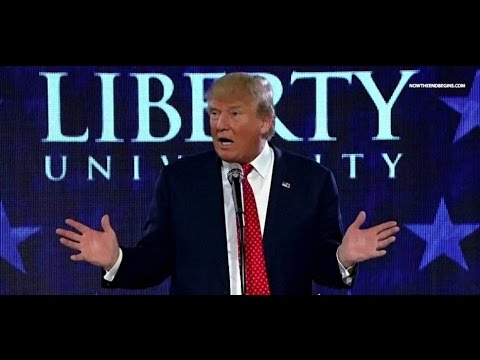Donald Trump has now won among evangelicals in South Carolina’s primary and in Nevada’s caucuses, keeping his momentum going into Super Tuesday. Sarah Palin’s endorsement and support from other high-profile evangelicals, including Franklin Graham and Jerry Falwell Jr., are further proof of Trump’s growing popularity among evangelicals.
What’s going on? How does a profanity-spouting authoritarian who argues for a ban on Muslims, demonizes Mexican immigrants, disparages women, the disabled and “losers” of all stripes capture the support of those who see Jesus as their savior and model for living life? As one of my evangelical Australian friends once asked me, “why do American Christians vote for fascists?”
Evangelicals are not a monolithic group politically. There are a small and growing number of evangelical progressives, and most high-profile evangelical leaders have shown support for more “establishment” Republican candidates. I rarely hear the evangelicals in my circles talking about politics at all, or demonizing Muslims or immigrants–definitely not from the pulpit. Still, it appears that a solid majority of the white evangelical rank and file is firmly supporting Trump.
Many have pointed to fear to explain Trump’s popularity, including Family Research Council’s Tony Perkins. Robert P. Jones of the Public Religion Research Institute calls evangelicals “nostalgia voters,” pointing to their anxieties about cultural change and the economy. From my perspective as a church-going evangelical and sociologist, evangelicals are vulnerable to being manipulated by fear because the religion lacks a vision of the public good.
American evangelicalism has its roots in American fundamentalism, which emerged as a rejection of the “social gospel” movement in the late 19th century. The social gospel, popular among mainline Protestants, interpreted the Bible through a more critical lens and promoted the idea of social reform through government and public institutions. Fundamentalism emerged to defend the authority of the Bible as God’s word, and as a reaction against the social gospel, it also rejected the idea of the idea of social improvement through government policy.
This produced a uniquely American, highly individualistic, privatized religion that still has a strong influence in evangelicalism. Most American evangelicals believe that their life is completely determined by their personal relationship with God and their own personal moral choices, not by the social institutions of which they are a part. Attempts to reform society through government policy are seen as hindering “personal responsibility” for one’s actions and therefore undermining, rather than promoting social improvement. Evangelicalism is American individualism on steroids.
Evangelicalism at its best is all about pursuing a personal relationship with a loving God and imitating the selfless love of Jesus in our personal relationships with others, including our enemies. This surely has a positive impact throughout society.
The problem is that this highly personalized faith says nothing about what Jesus’ ethic of self-sacrificial love looks like in public—in the sphere of immigration policy, military policy, economic policy, criminal justice policy.
Without a vision for any public good that can come from government, the only role left for government is to punish or restrict practices and people seen as “dangerous” or “evil.” This explains strong evangelical support for an interventionist military, tough on crime policies, the death penalty and restrictions on “suspicious” immigrants, while at the same time opposing government programs reducing poverty and promoting access to health care and education.
Evangelicalism’s inability to apply the ethics of Jesus to public policy leaves rank and file churchgoers vulnerable to politicians such as Trump, who are able to exploit their growing sense of marginalization and fear of other religions and racial groups. In an era where images of chaos and violence erupt constantly on the 24/7 news cycle and social media, the evil in the world appears overwhelming. Instead of loving their enemies, Trump, Cruz and other “politically incorrect” strong men promise to “carpet bomb” evil through the blunt force of the state.
Unless evangelical leaders can draw on the rich history of other Christian movements to develop a public theology based on the ethics of Jesus, their followers will continue to be drawn to the more authoritarian, nationalist and racist (i.e. fascist) elements in the Republican Party. This would surely accelerate the decline of evangelicalism among Millennials, who say they are tired of the angry politics of the religious right and hunger for a faith more interested in the public good.
My evangelical college students sometimes ask, “Why did most Christians in Germany support Hitler?” Future generations of students may well ask similar questions about us.
Brad Christerson is a contributing fellow with the Center for Religion and Civic Culture.





